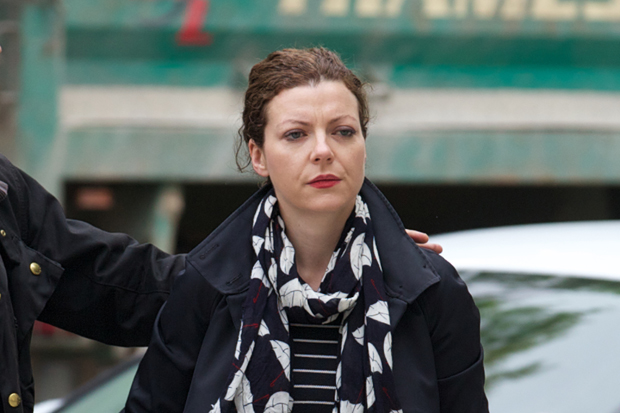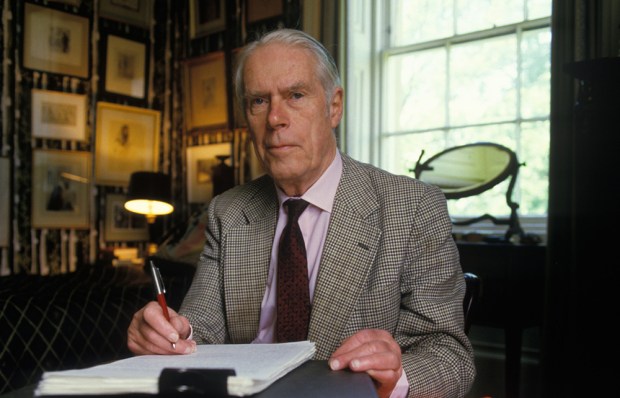Soon after I joined the Sun as managing editor (among other things, I used to review novels for The Spectator), I read an interview with Keir Starmer, the outgoing head of the Crown Prosecution Service. What an unhealthy thing it would be, he said, if journalists had to consult with lawyers every time they pursued a story or asked a question. He was right — yet this is precisely what it is now like for most people in the business of trying to break stories in Britain. More journalists are on trial or facing prosecution here than in many banana republics around the world — as my newspaper knows to its cost. Last week, Clodagh Hartley, the Sun’s Whitehall editor, was finally cleared of paying a source within HMRC. Together, they exposed plenty of government waste: a £1.3 million bill for promoting a Whitehall department, then the £24 million cost of moving a schools authority from London to Coventry. Clodagh was obtaining hard facts about how taxpayers’ money was being spent — free from the spin and misdirection of the government information machine. She spent two and a half years within the tortuous English legal system, unable to work, with the threat of prison hanging over her. Some 72,000 are currently on bail without having been charged; 5,000 for six months or more. No wonder that Lady Elizabeth Butler-Sloss and others are campaigning for pre-charge bail to be reduced to a maximum of 28 days. There are more than 20 Sun journalists still on trial or facing prosecution — some of whom have been on bail for three years, their lives and careers on hold. As the old saying goes: justice delayed is justice denied.
The day after Clodagh’s victory, the Sun was in the dock again — for another story that discomfited the fragile flowers in government. This time, it was our revelation that Andrew Mitchell, then chief whip, had referred to PC Toby Rowland, a No. 10 policeman, as a ‘pleb’. We published the policeman’s record of that night, to the fury of Mitchell, who has spent the last two years suing the Sun. He also accuses Toby of having been a liar in a public press conference. I sat in front of Toby’s wife, who exuded love for her husband and disbelief at the idiocy of the case against him. Being involved in expensive legal action is an occupational hazard for a newspaper like the Sun; a policeman on Downing Street is supposed to worry about being shot at by terrorists, not by barristers. The judge ruled that not only did Mitchell call one of his protectors a pleb, indeed a ‘fucking pleb’, he then falsely accused him of lying about it. Mitchell is now exposed — a poster-boy of the snooty, sneering, out-of-touch political class.
Afterwards, I was tasked with giving a short statement in front of the Royal Courts of Justice. You may have seen it on the news: a scruffy tabloid figure trying to make himself heard over the growling of a dog. Owner and pooch, who apparently rejoice in the same name, ‘Stuart’, like to protest at any major event where members of the media may be present (I hear they have visited party conferences for the last 30 years). I still don’t know what they were protesting about. Perhaps it was the loudness of my two-tone brogues. Only the night before I had been reading a Jeeves and Wooster story in which Jeeves had lured a dog called Macintosh by sprinkling his trousers with aniseed. Even the marvellous superbity of Jeeves, however, may have faltered at the sight of Stuart (dog, not owner) romping around with muzzled snout.
Speaking of fiction, it would be a shame to return to the pages of The Spectator and not recommend a book or two. This month I have been enjoying a wonderful old detective series by the American Robert B. Parker: the first book is called The Godwulf Manuscript and introduces the wise-cracking Spenser, named after a Renaissance poet but packing a better right hook. There is also a new translation of the ‘Accursed Kings’ series by Maurice Druon, a beautifully vicious set of novels set in 13th-century France. It’s like Game of Thrones, except based on real history.
It was such a busy week that I missed the annual Media Trust Really Big Quiz on Wednesday. A blessing, in the end. While the Sun achieved mid-table respectability, the trophy was won by Sky News, and hoisted aloft by my former LBC colleague Kay Burley. We woz robbed, of course.
Got something to add? Join the discussion and comment below.
Get 10 issues for just $10
Subscribe to The Spectator Australia today for the next 10 magazine issues, plus full online access, for just $10.
You might disagree with half of it, but you’ll enjoy reading all of it. Try your first month for free, then just $2 a week for the remainder of your first year.














Comments
Don't miss out
Join the conversation with other Spectator Australia readers. Subscribe to leave a comment.
SUBSCRIBEAlready a subscriber? Log in